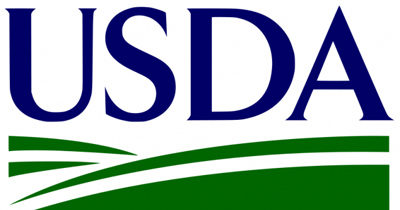Sep 13, 2021Enhanced disease protection to greenhouse industry, several crops pursued
USDA’s Animal and Plant Health Inspection Service will begin testing randomly selected imported Pelargonium( geranium) plant material for the bacterial pathogen Ralstonia solanacearum at Plant Protection and Quarantine’s Plant Inspection Stations located at major ports of entry.
The testing will begin on Sept. 27, 2021.
Because plants and cuttings infected with Ralstonia solanacearum can remain asymptomatic for some time, visual inspection could miss infected plants. The technology used for this new testing is sensitive enough to detect Ralstonia solanacearum in symptomatic and asymptomatic plants. The testing will add a powerful safeguarding measure to our rigorous offshore certification programs, which are designed to minimize a commodity’s plant pest risk before it ships. It will also provide enhanced protection to the U.S. greenhouse industry and to several important agricultural crops, such as potatoes, tomatoes, and eggplant, against this pathogen.
When a shipment is randomly selected for testing, plant samples will be secured during the visual phytosanitary inspection. Testing will commence the same day if time allows or be scheduled to start at the beginning of the following business day. The testing may increase the shipment’s time on hold by approximately 8 to 24 hours. The delay can be minimized if shipments are presented early in the workday. Pelargonium cuttings that are tested will be destroyed. The number of plants that APHIS tests will depend on the shipment’s size. APHIS will not test more than 298 cuttings in a shipment.
Regulatory action will be taken on an entire Pelargonium shipment in the event that at least one plant cutting tests positive for Ralstonia solanacearum (at the species level). All cuttings that test positive will be sent to PPQ’s Plant Pathogen Confirmatory Diagnostics Laboratory in Laurel, MD, to determine whether race 3 biovar 2 is present.
USDA considers Ralstonia solanacearum race 3 biovar 2 a plant pathogen of quarantine concern because of its potential to cause serious harm to U.S. agriculture. It causes plant diseases such as brown rot of potato, bacterial wilt of tomato and eggplant, and southern wilt of geranium. It can be transmitted through contaminated water, soil, and equipment, or by people’s inadvertent actions. Fortunately, it is not harmful to people or animals.
Using advanced technology to detect harmful pathogens is the latest effort taken by the Animal and Plant Health Inspection Service (APHIS) to ensure that the U.S. horticultural and potato industries are protected from potential invasive and economically devastating plant pests.
For more information about APHIS programs, visit here.















